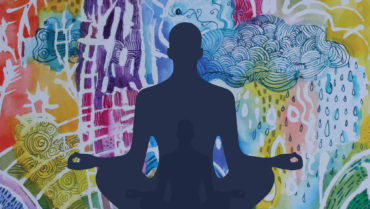Ophthalmology training is a considerably challenging experience for trainees, despite its rewards. The learning curve is steep as residents start their first year (second intern year) of training and confront the many intricate skills to be mastered on the path to graduation. Although a handful of programs dedicate the first few weeks to ramping up the newly minted PGY-2s in a bootcamp-style introduction, most residency programs cannot offer this luxury, and often it is trial by fire. But a lot of rewarding growth takes place in those 3 years. Along the way, it is important for us residents to be mindful of our weaknesses, to acknowledge and accept our limitations, and to work toward incremental improvements. In addition, we must prioritize self-care so that we can perform at our best when it comes time to care for others.
ADOPT THE RIGHT MINDSET
It has been said that surgeons are essentially high-performance athletes and that we should treat our bodies and minds as such. This concept was popularized by Atul Gawande, a Harvard University professor and New York Times bestseller. In a 2011 article in The New Yorker, he argued that, like any professional tennis or golf player looking to improve their game, a surgeon can use a coach to mitigate performance plateaus.1 This can be achieved by having a skilled observer monitor our every move while we operate. In residency, we have attendings to coach us through difficult situations and to help us develop our surgical techniques. To truly improve, it is essential that we remain open to criticism and willing to address our weaknesses. We can even go a step further and seek out feedback by recording our surgeries and reviewing them with our attendings and senior residents. Again, just as athletes review their tapes, so should we. This practice can be tough on the ego but will ultimately make us better surgeons.
When it comes to one’s fund of knowledge, the same concepts apply. I use question banks to identify areas where I consistently underperform and target my reading accordingly. I aim to maintain a routine that allows me to stay current on topics in ophthalmology, whether through reading review articles, watching educational videos, or listening to podcasts. Find whatever medium works best and exploit it.
PRIORITIZE A SOUND BODY FOR A SOUND MIND
This may come as no surprise, but regular exercise and a healthy diet can improve cognitive function and synaptic plasticity, thereby enhancing one’s ability to learn new skills.2 As busy as residency can get, it is important to block off time to exercise. Small actions such as keeping a gym bag in the car and stopping at the gym on the way home for a quick 20-minute workout go a long way. Integrating new habits by building on old ones, also known as habit stacking,3 is a method that I’ve found useful. As a result, I now run 3 miles almost daily.
More importantly, we residents should take care of our bodies for the sake of career longevity. In ophthalmology, we tend to hold awkward positions throughout the day. A survey of US ophthalmologists revealed that 52% of respondents reported neck, upper body, or lower back pain, and 15% had to set aside their work as a result.4 It is much harder to break a bad habit than to build a healthy one, so we should start paying attention to ergonomics early on in our careers and use flexibility-based training such as yoga and Pilates to improve posture and release the built-up tension that results from sustaining certain positions for prolonged periods.
REST AND MEDITATE
Getting adequate rest is easier said than done. I am guilty of spending too many hours binge-watching Netflix or scrolling through Instagram instead of getting much-needed sleep. Set a goal to get 8 hours of sleep every night (at least when not on call), hydrate well, and exercise regularly. During any time off, try to spend time outdoors and get as much sunlight and fresh air as possible to balance out the hours spent under fluorescent hospital lights. Additionally, I’d be remiss if I didn’t mention the benefits of mindfulness. Even a 10-minute daily practice can reduce stress and improve relaxation efforts. An American Medical Association membership allows access to a free 2-year subscription to Headspace, an online guided meditation platform.
SEEK OUT SUPPORT
Throughout training, I have found it very helpful to stay connected to family and friends. There will be challenging periods during residency when training feels like running a marathon, and our loved ones can serve as our cheerleaders. Finally, we can and should take advantage of the resident support programs available through our institutions. When it comes to our mental and emotional well-being, we should never hesitate to seek professional help.
1. Gawande A. Personal best. The New Yorker. September 26, 2011. Accessed October 27, 2021. www.newyorker.com/magazine/2011/10/03/personal-best
2. Gomez-Pinilla F and Hillman C. The influence of exercise on cognitive abilities. Compr Physiol. 2013;3(1):403-28.
3. Clear J. How to build new habits by taking advantage of old ones. James Clear. Accessed October 27, 2021. https://jamesclear.com/habit-stacking
4. Honavar SG. Head up, heels down, posture perfect: ergonomics for an ophthalmologist. Indian J Ophthalmol. 2017;65(8):647-650.



